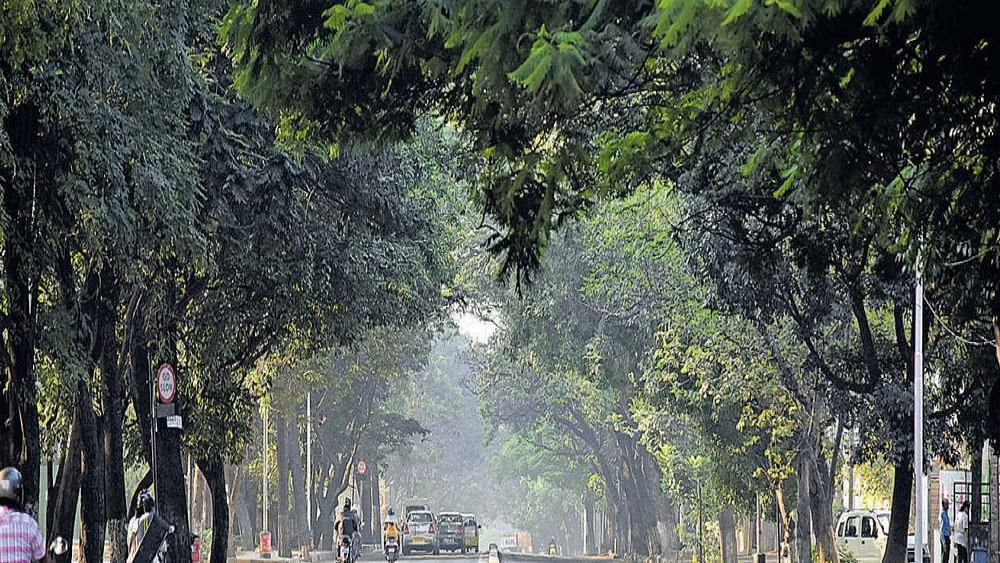
Tree-lined street. Representative image.
Credit: DH Photo
An international consortium of research scientists have issued a dire warning about the Earth's future after they found that the planet's natural carbon sinks absorbed almost no carbon last year. Forests, grasslands, the land and oceans are often touted as great carbon sinks, but what if that is no longer true?
CO2 emissions have been manageable for thousands of years. In fact, when emissions by humans began increasing, plants kept up by absorbing more carbon dioxide. But this was when plants had the advantage of a relatively stable climate.
But as temperatures continue to increase and as agricultural activities also expand, the delicate balance of the Earth's ecosystem has been disturbed and the results are disturbing.
A joint paper published by scientists from China, the UK, France, and Germany, revealed that in 2023, the hottest year ever recorded in human history, forests, plants and soil absorbed almost no carbon.
Johan Rockström, director of the Potsdam Institute for Climate Impact Research, issued a dire warning — “Nature has so far balanced our abuse. This is coming to an end.”
But why did plants stop absorbing carbon?
Earlier this year, a paper found that the total amount of carbon absorbed between 1990 and 2019 by forests had stayed constant. There were, however, region-wise variations.
The boreal forests that cover large swathes across Russia, Scandinavia, Canada, and Alaska were seen to be absorbing less carbon — down by more than a third — for a variety of reasons — from forest fires to the clearing of land for timber.
In addition, there was also a drought in the Amazon and in parts of the tropics. The heat is believed to be responsible for driving the collapse of the carbon sink in 2023.
Philippe Ciais, an author on the paper and a researcher at the French Laboratory of Climate and Environmental Sciences, commented: “In 2023, the accumulation of CO2 in the atmosphere was very high and this translates into a very, very low absorption by the terrestrial biosphere."
“In the northern hemisphere, where you have more than half of CO2 uptake, we have seen a decline trend in absorption for eight years,” he added, according to The Guardian. “There is no good reason to believe it will bounce back.”
So, should we hold out any hope, when extreme temperatures, erratic weather conditions and climate-related disasters like forest fires are becoming the norm rather than the exception? Though the oceans continue to soak up some of the carbon emissions, this has also lead to rising sea temperatures.
While the 2023 statistics are concerning, if exposure to droughts and wildfires decreases, there is a chance that the crisis will be short-lived.
Professor Andrew Watson, head of Exeter University’s marine and atmospheric science group, told the publication: “Overall, models agreed that both the land sink and the ocean sink are going to decrease in the future as a result of climate change. But there’s a question of how quickly that will happen?"
He added, "The models tend to show this happening rather slowly over the next 100 years or so. This might happen a lot quicker. Climate scientists [are] worried about climate change not because of the things that are in the models but the knowledge that the models are missing certain things.”
Professor Pierre Friedlingstein, of Exeter University, warned that we "shouldn’t rely on natural forests to do the job."
"We really, really have to tackle the big issue: fossil fuel emissions across all sectors,” he said.